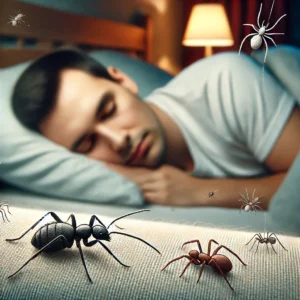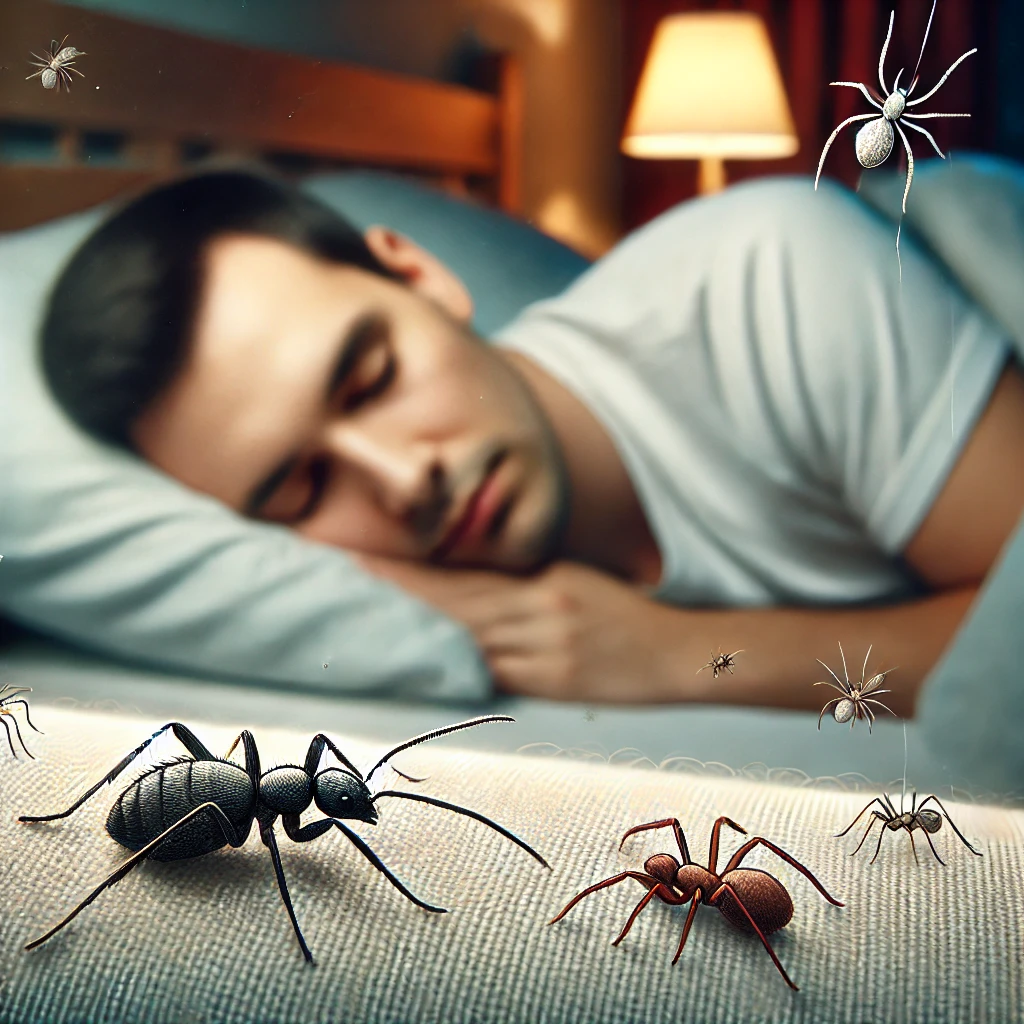The Shocking Truth: You Might Eat 70 Insects and 10 Spiders While Sleeping in Your Lifetime
It sounds like something out of a horror movie, but it’s true: over the course of an average lifetime, you may unknowingly consume around 70 insects and 10 spiders while sleeping. While this statistic can be unsettling, it’s a natural part of life that most people aren’t even aware of!

Why Does This Happen?
While you’re peacefully asleep, small insects and spiders sometimes find their way into your mouth. It happens for a variety of reasons:
- Warmth and Moisture: Your mouth is warm, moist, and provides an ideal resting spot for tiny creatures seeking refuge.
- Unintentional Movements: As you sleep, small insects may crawl into your mouth without you noticing. Some insects and spiders are drawn to the smell of food particles or moisture.
- Nocturnal Nature of Spiders: Spiders are often more active at night, which increases the chance of an encounter while you’re in a deep slumber.
Is It Dangerous to Swallow Insects or Spiders?
Thankfully, most insects and spiders that might find their way into your mouth are harmless. In fact, eating insects, though unintended, isn’t dangerous in small amounts. Some cultures even consider them a source of protein!
However, it’s still important to maintain proper hygiene, particularly in your sleeping environment, to minimize this happening.
Tips to Prevent Insects and Spiders from Crawling Into Your Mouth
Though you might not be able to entirely avoid this creepy fact, there are several steps you can take to limit the chances of swallowing insects or spiders while sleeping:
- Clean Your Bedroom Regularly: Dust and dirt attract insects. Keeping your room tidy can reduce the number of bugs hanging around.
- Close Windows: Keep your windows closed at night or use screens to prevent insects from flying or crawling inside.
- Use Insect Repellents: Insect repellents or essential oils like lavender and peppermint can deter bugs and spiders from entering your space.
- Wash Your Bedding: Regularly washing your bedding can help remove any lingering insects and create a cleaner sleeping environment.
The Myth Behind It All
It’s worth noting that while many experts agree you might consume a small number of insects throughout your life, the idea of regularly eating 70 insects or 10 spiders is debated. Most of this consumption happens unknowingly, and it might be less common than these numbers suggest. Still, insects and spiders are a natural part of life, even in your sleep.
Conclusion
While it might seem gross or unsettling, the occasional insect or spider finding its way into your mouth while sleeping is a natural phenomenon. It’s a good reminder of how connected we are to nature—even in the safety of our beds!

